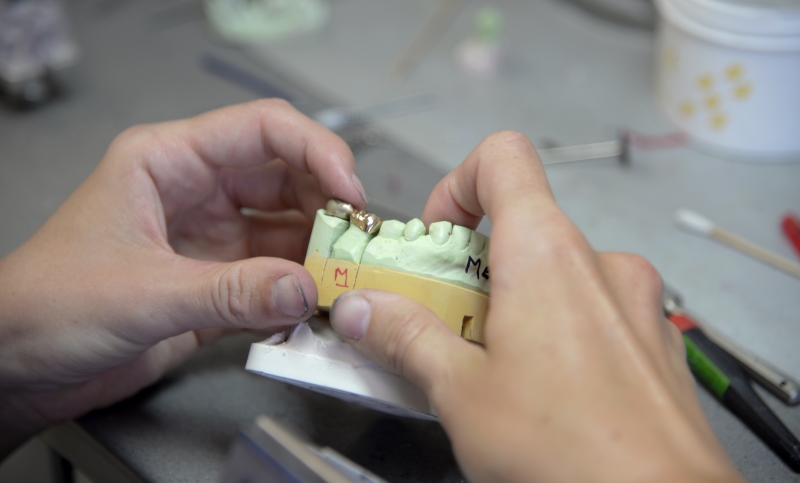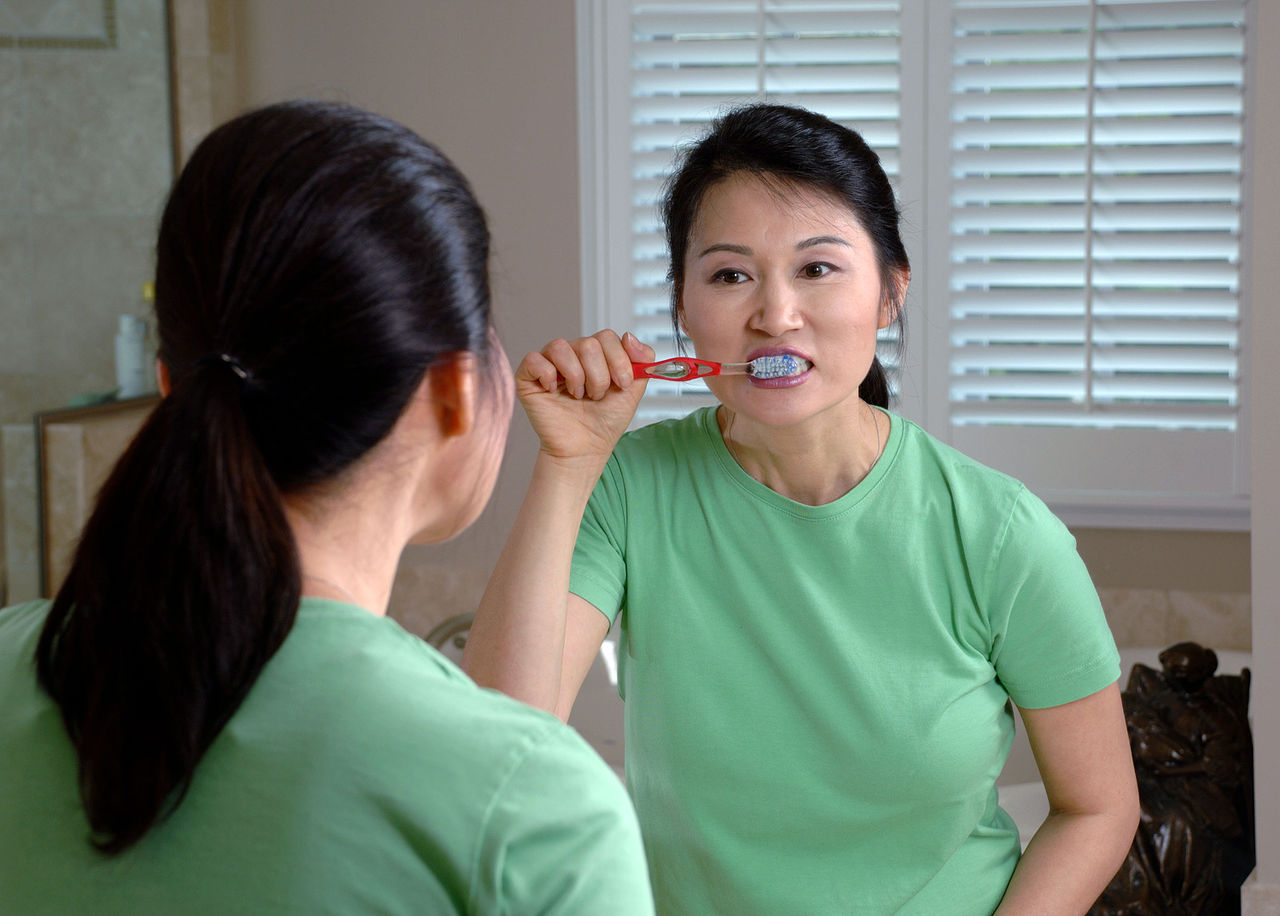A dental crown is a tooth-shaped cap that fits over the visible areas of the tooth. Made to resemble your teeth, a dental crown might be necessary in several instances, such as protecting and strengthening a broken or decayed tooth. However, there are certain situations where a less expensive option should be considered.
If your dentist has recommended dental crowns, it is most likely because there is a concern that a smaller, more temporary procedure like a filling will not be able to solve the problem completely. It may be tempting to avoid the pain and postpone the procedure. However, untreated tooth decay can lead to tooth pain, sensitivity, and even a serious infection called tooth abscess. A crack or a fracture in a tooth may grow and bacteria may seep in and infect the tooth. At the worst, your tooth may have to be removed.
As a result, dental crowns are sometimes needed to protect your teeth and prevent further pain from occurring.
When Are Dental Crowns Necessary?

A dentist may suggest a dental crown for a few reasons:
- Tooth decay. In these cases, the tooth is too damaged for a filling or has a filling that takes up most of the tooth already. The root of the tooth is still attached, so a crown may be used to cover the remaining areas after the damaged parts have been removed.
- After a root canal. A dental crown is placed on top of the injured tooth after a root canal procedure when the infected tissue has been removed from the damaged teeth.
- Cracks or chips. A crown will cover the rough edges of a cracked or chipped tooth and may even keep bacteria from getting to the root of the tooth through a crack.
- Dental Implants. If dental implants are used, a crown may be placed on top of the implant post and cover the implant.
- Appearance of teeth. Crowns may also be used when teeth are stained, discolored, or are irregularly shaped to improve their appearance.
- Attaching bridges. Bridges may be used to correct a missing tooth gap and a dental crown may help to support the bridge to cement it in place.
Types of Dental Crowns

The typical cost of a dental crown can range from $800 to $1800, but several factors play into the cost for a particular type of crown. For example, the crown’s material, location and size of the tooth, work to prepare for the crown, and the dentist’s experience can determine the cost.
One way to reduce the cost is to consider the materials used for the crown.
- Gold crowns are the most expensive but can last for decades if treated properly. They are the least likely to irritate the insides of the mouth than other metals and less of the tooth needs to be removed to prepare for the crown. However, other metals such as nickel and stainless steel are less expensive but just as durable.
- Stainless steel crowns are the most ideal for children who have experienced extreme tooth decay in their primary teeth. These crowns can also be used for permanent molars; however, stainless steel crowns tend to be more noticeable. This option is less costly and temporary.
- Porcelain or all-ceramic crowns resemble teeth the closet, so they are more often chosen for visible teeth. However, they are more expensive than metal crowns and are less durable.
- Porcelain fused to metal crowns have a metal base but a porcelain surface and provide the strength of metal crowns with the aesthetic appeal of porcelain. Although these aren’t as durable as metal crowns, they are still more long-lasting than pure porcelain crowns.
- Resin crowns are the least expensive option but are also the least durable. Although they resemble natural teeth like porcelain, they tend to wear down quickly and may need to be replaced sooner than other materials.
While cost may be an important factor, patients should also consider looks and durability when choosing between types of crowns. It is important to consider your dentist’s recommendation to see which type of dental crown is the best in your situation.
When Are Dental Crowns Unnecessary?
There may be more appropriate alternatives when a problem is small enough to solve without a dental crown. These alternatives may be able to save patients money, pain, or both in a shorter amount of time. Some examples are:
- Veneers. To improve the aesthetic appearance of teeth, a patient can consider a veneer. A veneer is a hard coating attached to the front of a tooth. Also known as a “tooth cover,” they help to correct discoloration or misshapen teeth.
- Fillings. These may be a cheaper alternative if the chipped tooth remains mostly intact. Fillings will help to rebuild the tooth structure.
- Partial crowns, such as onlays and ¾ crowns, will cover a smaller part of the remaining tooth area and are less expensive than a full crown. These can be used when a filling might not be enough to support the tooth but a full crown may not be necessary for the amount of damage.
Additionally, crowns are not completely fool-proof. They can break off when the tooth under the crown has continued to decay, or when the cement holding the crown in place wears away.
Regardless, if you are experiencing problems with your teeth, these issues shouldn’t be left untreated, or else more pain and more cost can result.
If you are uncertain about the necessity of a dental crown, the dentist will be able to recommend what will be best in your situation. You can use our online search tool to find experienced professionals in your area. It is more important to find a dentist who can provide excellent care and the best value for your money.
How to Take Care of Your Dental Crown

While the dental crown does not decay, the tooth that it covers can still become exposed to bacteria, which can progressively decay the tooth.
Dental crowns generally last from five to 15 years. In order to maintain the crown, you should continue to follow proper dental hygiene and avoid actions that will damage your teeth (such as grinding or clenching your teeth and chewing hard foods such as ice).
Where to Get Dental Crowns
Before getting a dental crown, it is important to talk to your dentist to see if more affordable alternatives are possible. You can ask your dentist to explain their reasoning for the procedure. If a crown is necessary, dentist experience and skill are crucial to creating a long-lasting dental crown. As such, it is important to find a dentist who will be able to provide this.
Tooth decay and further damage to teeth are necessary to be taken care of and shouldn’t be avoided. If you are experiencing pain and your dentist recommends a dental crown, don’t delay scheduling the procedure. However, make sure that your dentist is choosing the type that is right for you in terms of cost, material, and size.


